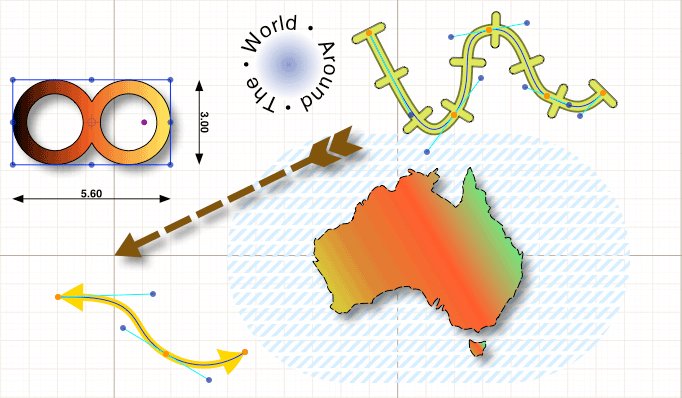I thought about creating a program which would give you dyslexia but then how to assess it ? I realised you could create an page modification which would be harder to read and then you could test people's reading ages until it got low enough.
I wonder if anyone in the OU does this.
http://www.sedl.org/cgi-bin/mysql/rad.cgi?searchid=246
Authors: Muter, Paul; Latrémouille, Susane A.; Treurniet, William C.; Beam, Paul
Did text on TV screen against a book "Video subjects read 28.5% more slowly than book subjects" but other wise the same. But this work was really out of data text wise.
one to check out later.
http://www.jstor.org/pss/40030408
FH Heppner, JGT Anderson, AE Farstrup, NH … - Journal of Reading
only 2/3 of the original speed is not bad.
Using computer-based readers to improve reading comprehension of students with dyslexia www.springerlink.com/content/8376619043612w71/ Dyslexics gain a grade using screen reader. That would bear out my experience.
this looks good from the HCI perspective.
http://www3.interscience.wiley.com/journal/118865288/abstract?CRETRY=1&SRETRY=0
positive aspect of dyslecxia ( from a feel good website )
- Perception: the ability to alter and create perceptions;
- Highly aware of the environment;
- Highly curious;
- Great intuition and insightful;
- Thinking and perceiving multi-dimensionally (using all the senses);
- A lively imagination;
- Can experience thought as reality;
- Creativity;
- Easy adoption of change;
- Holistic, see the big picture, don’t get lost in details, get to the important aspects;
- See patterns, connections, and similarities very easy;
- Concentration;
- Can be very driven, ambitious and persistent;
- Superior reasoning;
- Capable of seeing things differently than others;
- Love for complexity;
- Simultaneous multiple thought processing;
- Not following the crowd;
- The ability of visual, spatial and lateral thinking.
I'm not sure I agree with all of these. Like what does 'experience thought as reality mean ? ' and in what why is creativity and 'a lively imagination' different? I'm not sure about 'superior reasoning' mean perhaps is more like the holistic one but just badly phrased. I'm not sure I would put ambitious in the list how can this be related to the other features. and visual, spatial and lateral thinking are very similar to others previously mentioned.
OK pinch of salt time. I don't think these are universal.
Ok in another webiste the advantages are
- perception if visual figure gestalt
- Strong visual imagery/Mory
- visually observant (people,things)
- good with spatial problems.
- lateral thinking/problem solving. (good with logic puzzels)
- visual thinking (I think I would agree with that).
- color sensitivities
- Thinking holistically
- Abstractive
- Interdisciplinary.
- strong spatial memory ( Another I agree with )
- strong emotional memory - ( I've never thought of that and not sure )
-
Excellent long-term memory for experiences, ( hard to say ) from here - Excellent long-term memory locations, ( hard to say )
- Excellent long-term memory faces. ( hard to say )
- Ability to drift in time - ( not sure but I've seen other comments like that but they lack clarity, is this related to 'poor time management?' )
- See the over all shape no the texture of detail.
- Some comments about being able to predict what is going to happen in a film. I do that but I'm not sure this is a dyslexic thing. I mean everyone finds films very predictable right ?
- Maths conceptualisation,
- Mechanical ability
- Practical skills ( is this different from mechanical ability )
- Verbal Communication ( I'm not sure if this is inherant but I'm quite articulate' )
- Musical Skills (apparently)
- I've seen strong work ethic but is this in the mind or learnt ?
-
Julie Logan, a professor of entrepreneurship at the Cass Business School in London, found that more than a third of the entrepreneurs she had surveyed — 35 percent — identified themselves as dyslexic. ( from New York times). Similar study did 20% in the UK. Again I've done this but I don't know if this is the result of some primal urge to set a business up. Perhaps its the result of more creativity or perhaps the ability to ignore convention at will. If your born out of line then perhaps its easy to being to do the impossible and ignore convention. Perhaps its difficulties being stuck at the bottom with clearly insipid minds above you. Perhaps this makes you feel you could do things smarter.
I've found more quotes about
- Determined
- Persistent
- Empathetic - which might match up with other desciptions above
- Insightful - bit vague but links up with the holistic thinking.
One interesting quote 'I adopted a strategy for squeezing through the system.' I know of a number of dyslexics who squeeze through the gaps in society rather than find a traditional path within in. Again an interesting observation but how does this relate to software design.
So how might you support/use this in software design ?
How do you design for someone who is much stronger spatially than you?
How do you facilitate someone with better lateral thinking skills ?
more advice on the down side
http://www.made-for-all.com/2009/01/06/designing-for-users-dyslexia/
http://81.89.134.99/main/information/extras/x09frend.asp
http://www.dyslexia-parent.com/mag35.html
good example of what I have to do
http://jackieweber.net/Projects/downloads/dyslexia.pdf
Helen Irlen's book Reading by the Colors.
mirror-opposites: s/he might see
- p instead of q,
- d instead of b,
- 127 instead of 721
- saw instead of was
- lion instead of loin
on the up side ( Iphone )
http://www.guardian.co.uk/education/2010/apr/06/iphone-makes-reading-books-easier
Oh someone has done a simulatrion poo
http://www.webaim.org/simulations/dyslexia-sim.html






